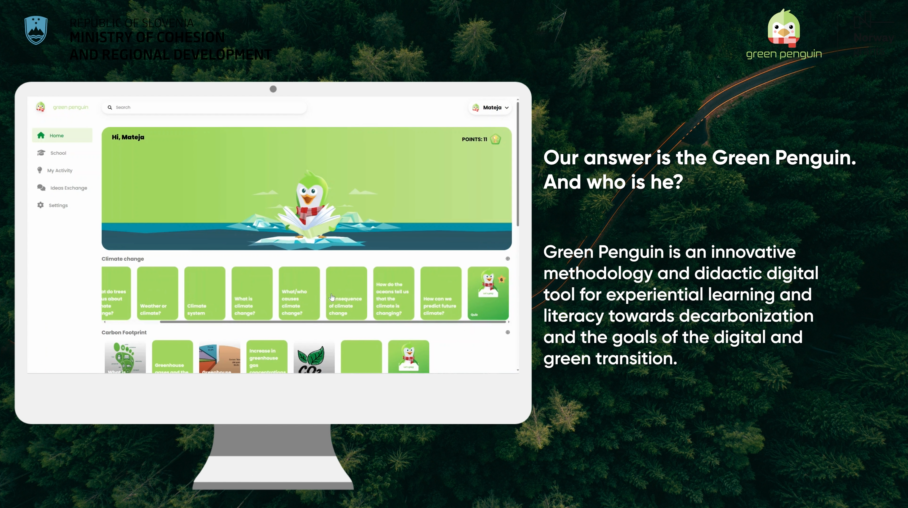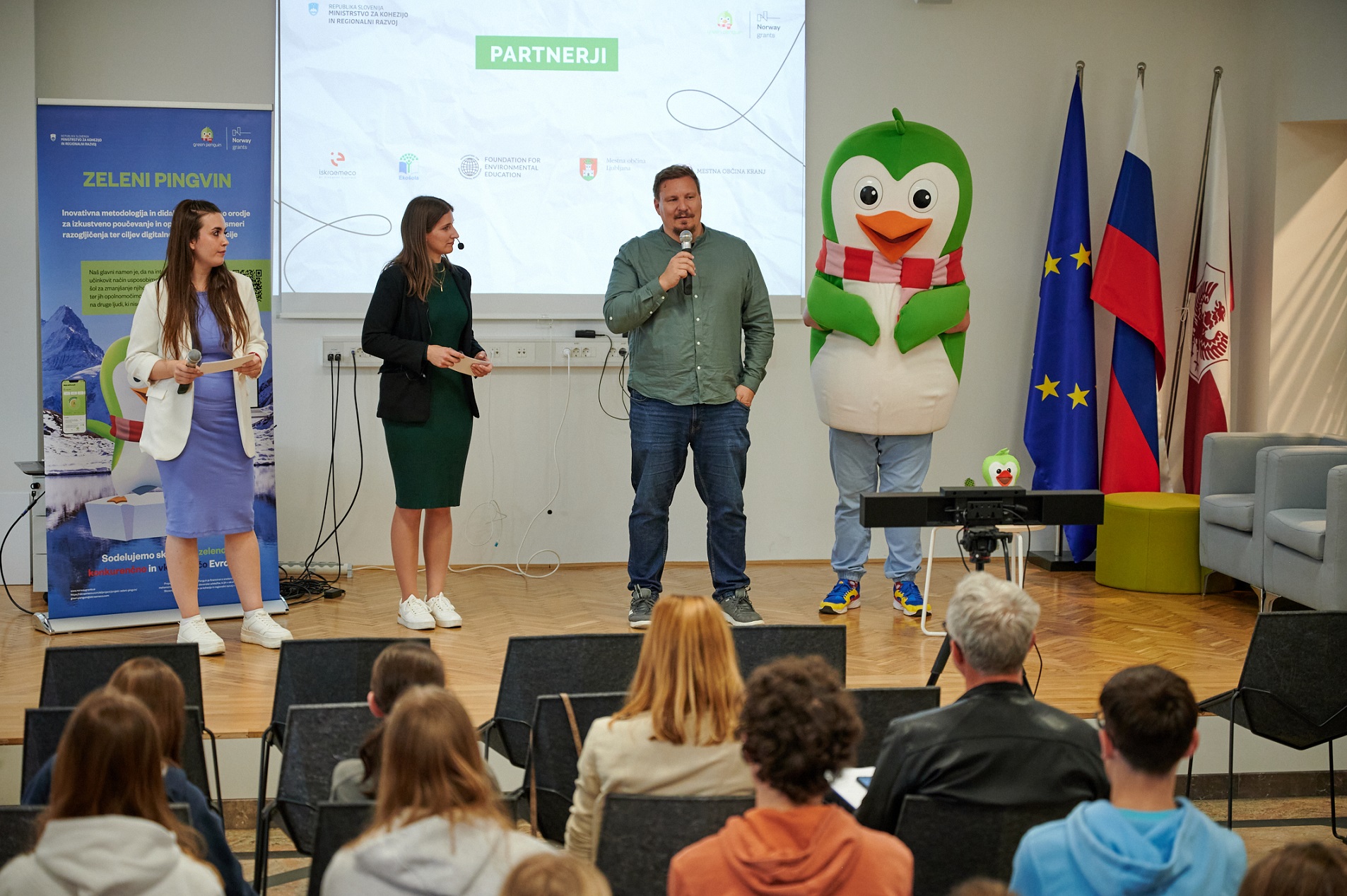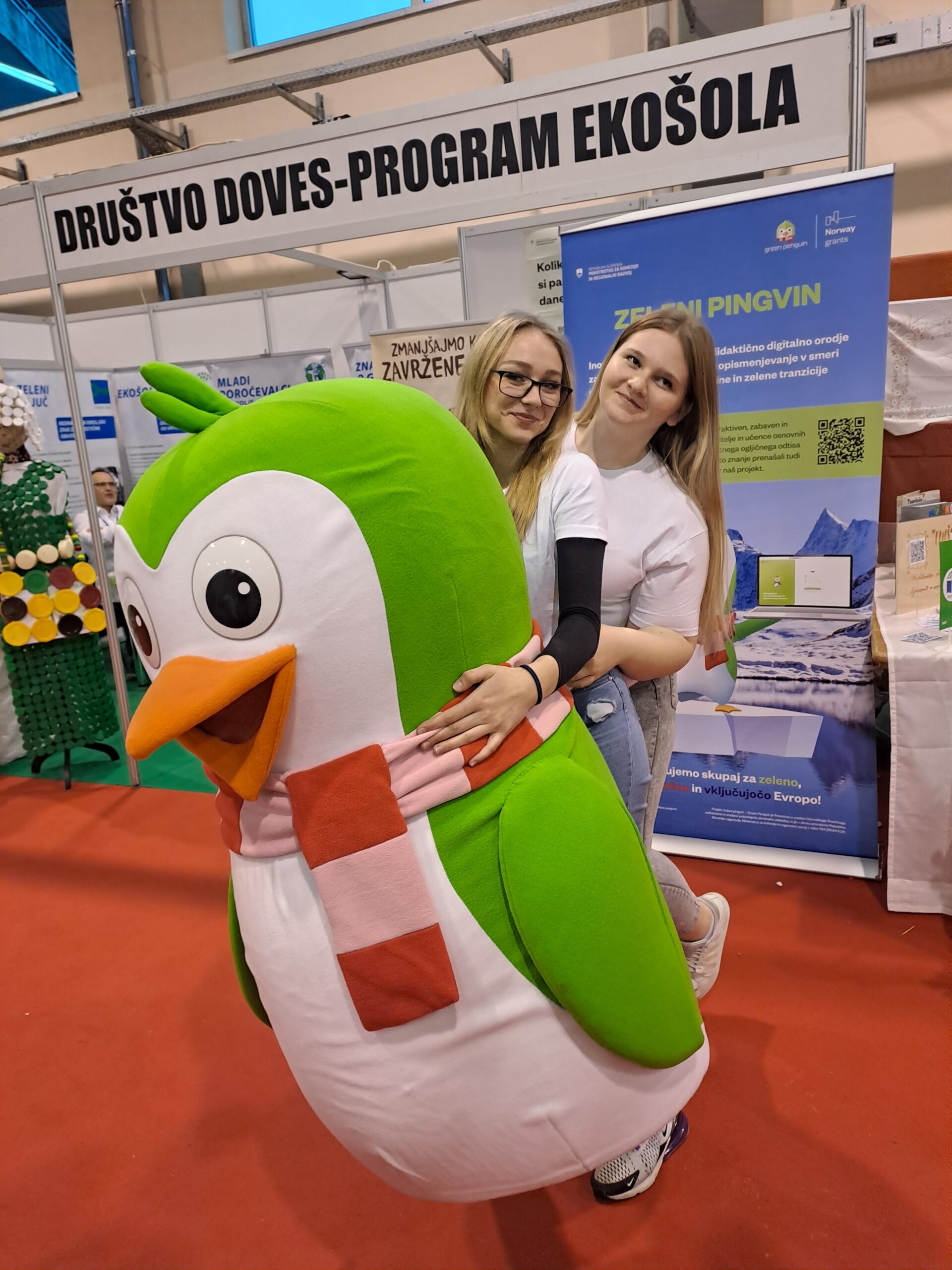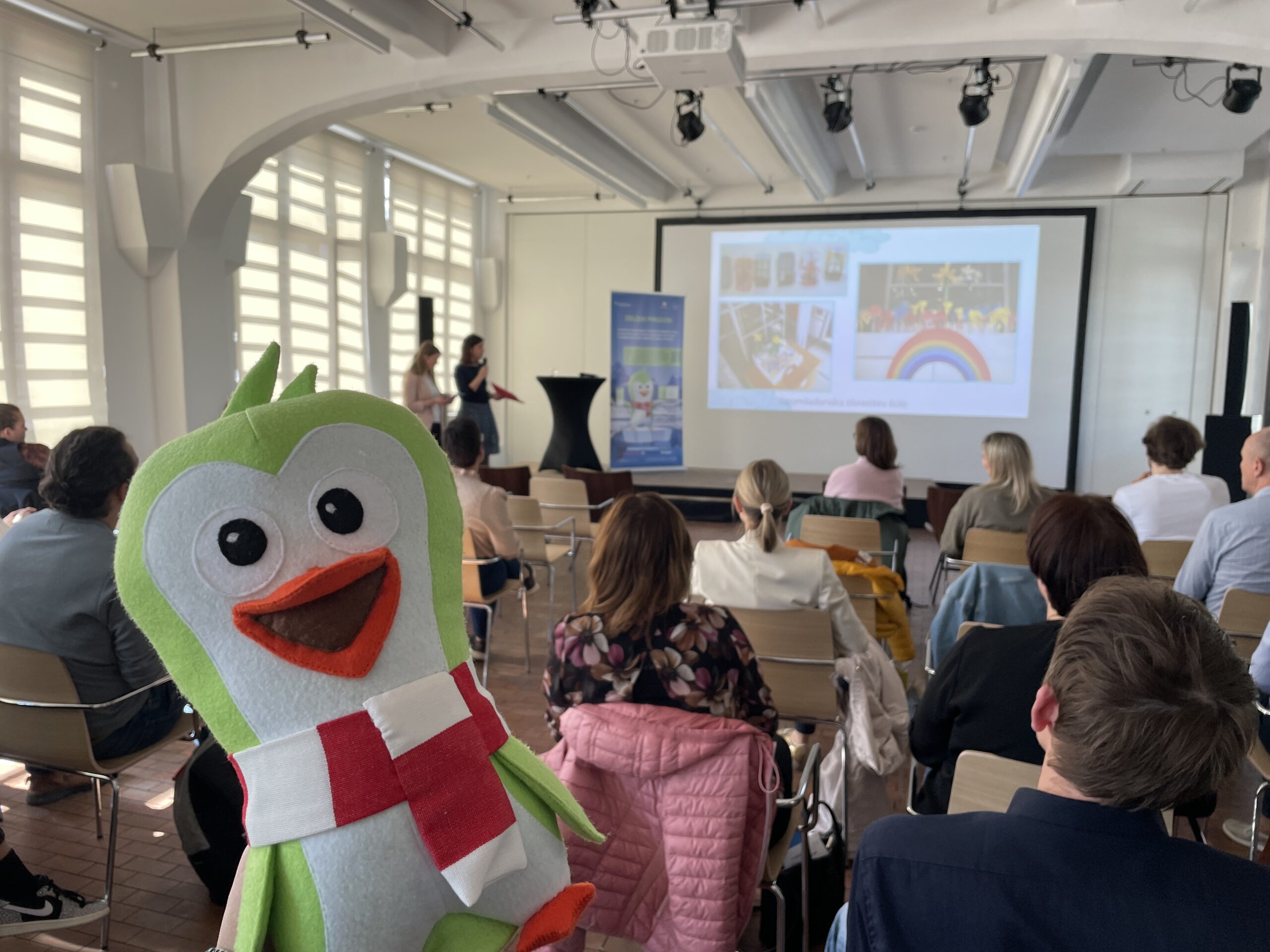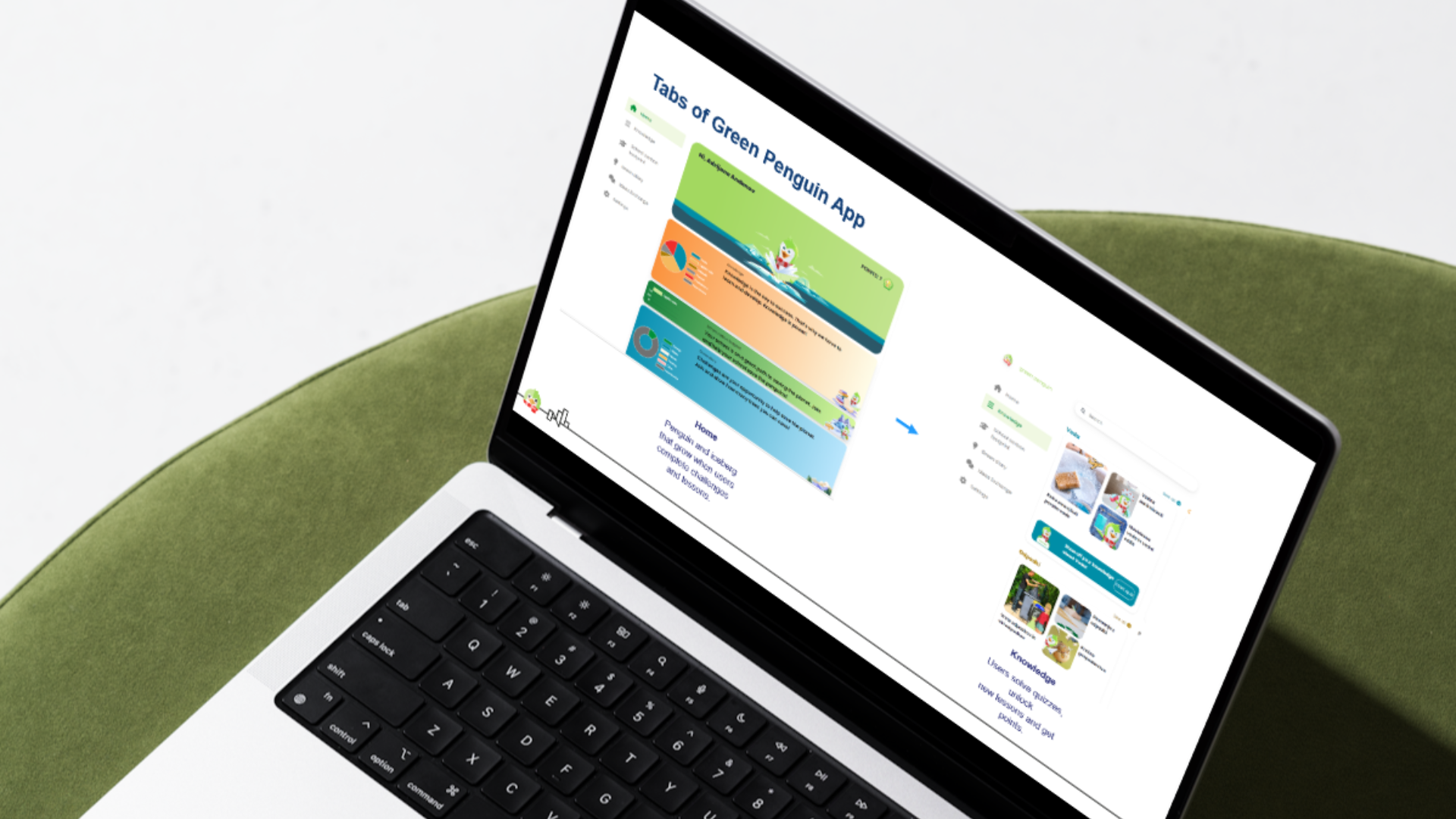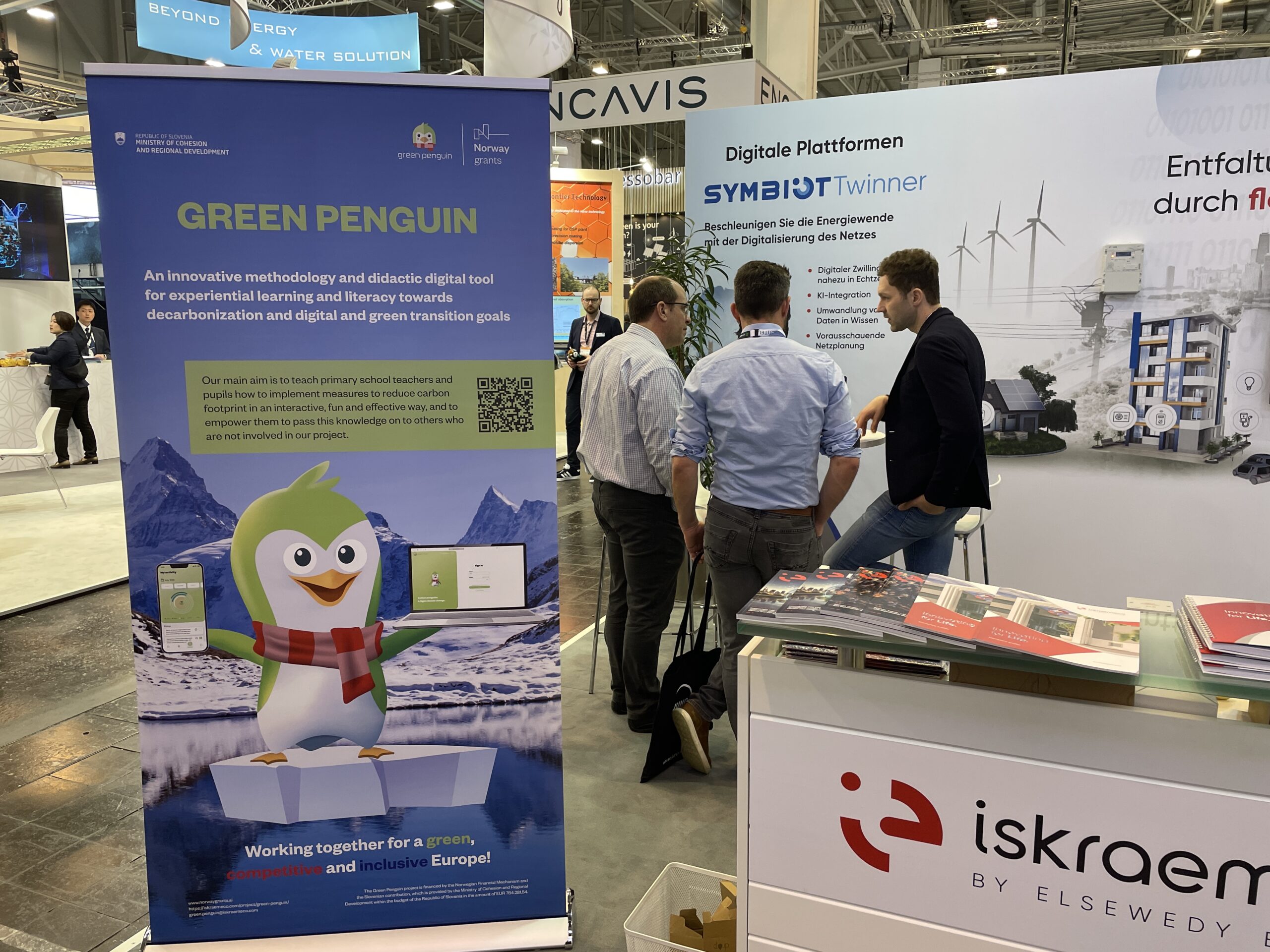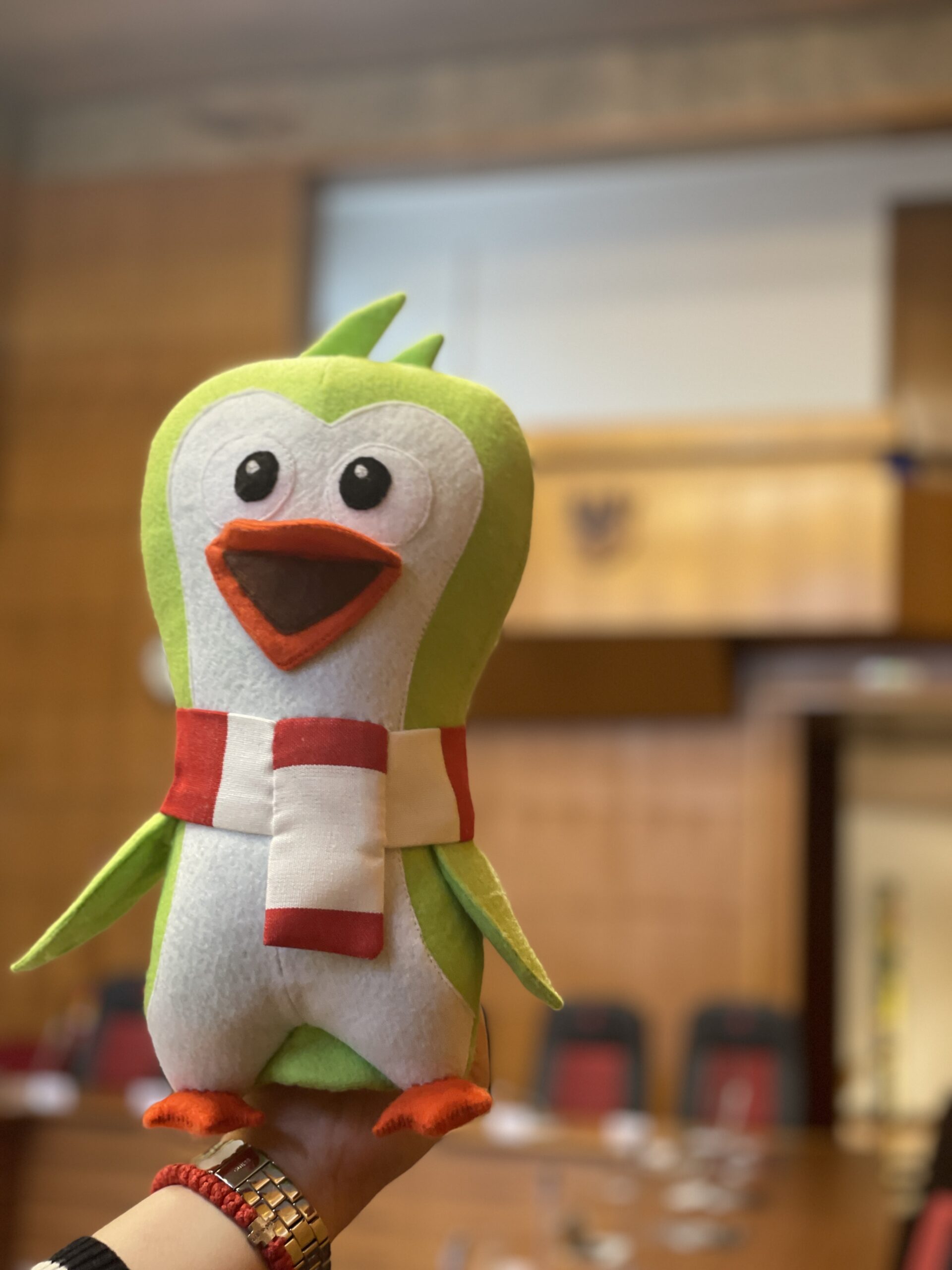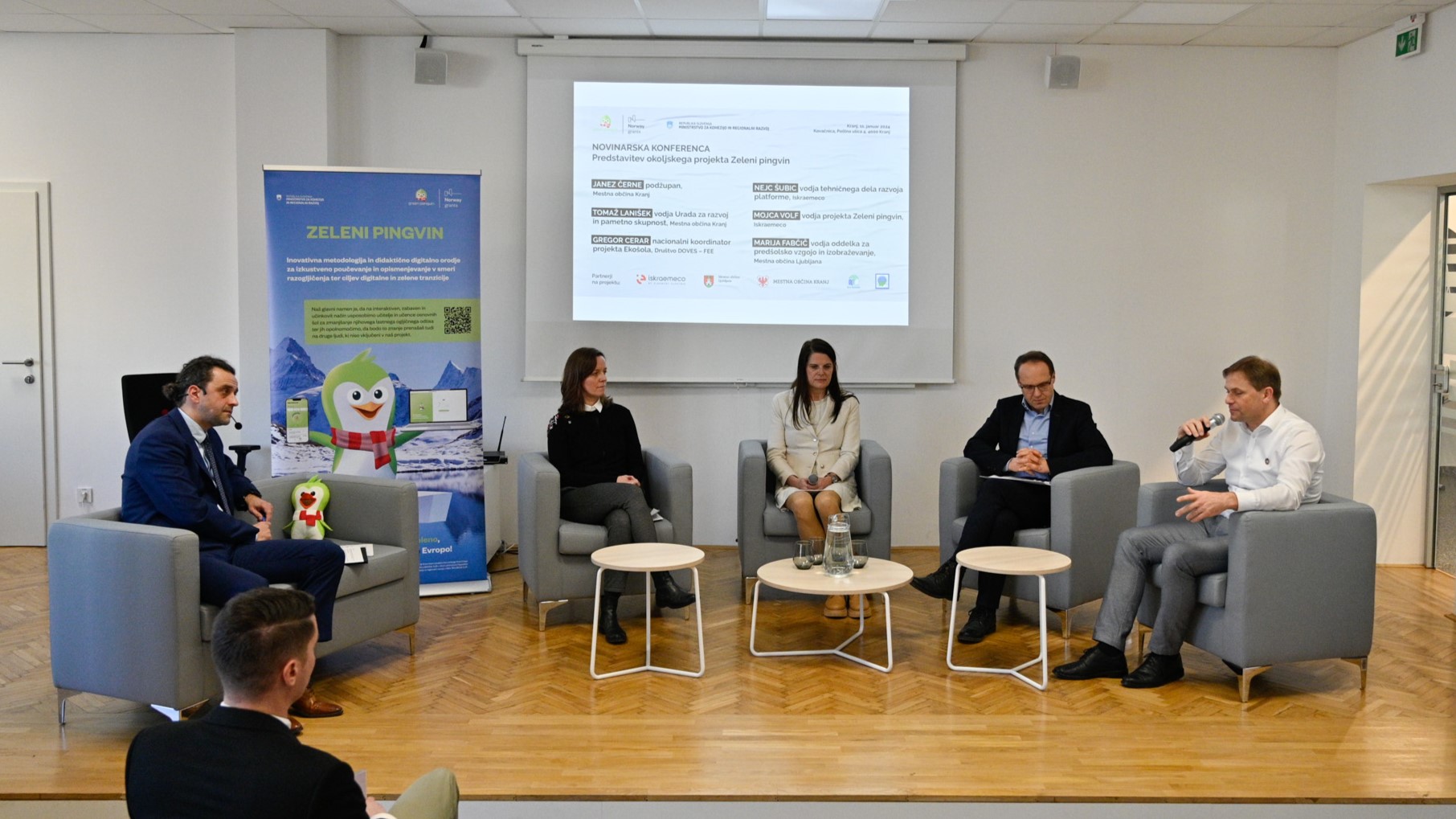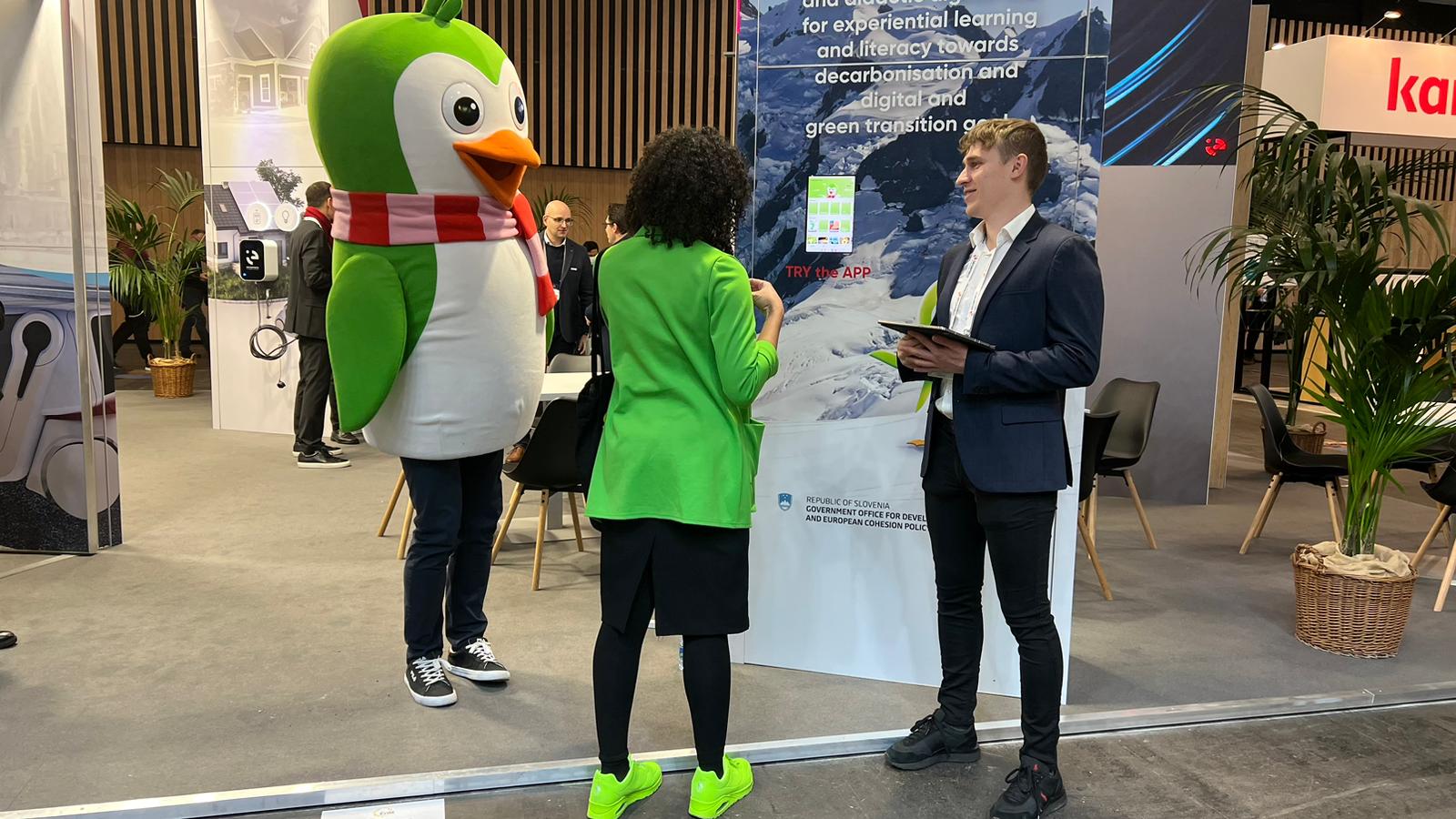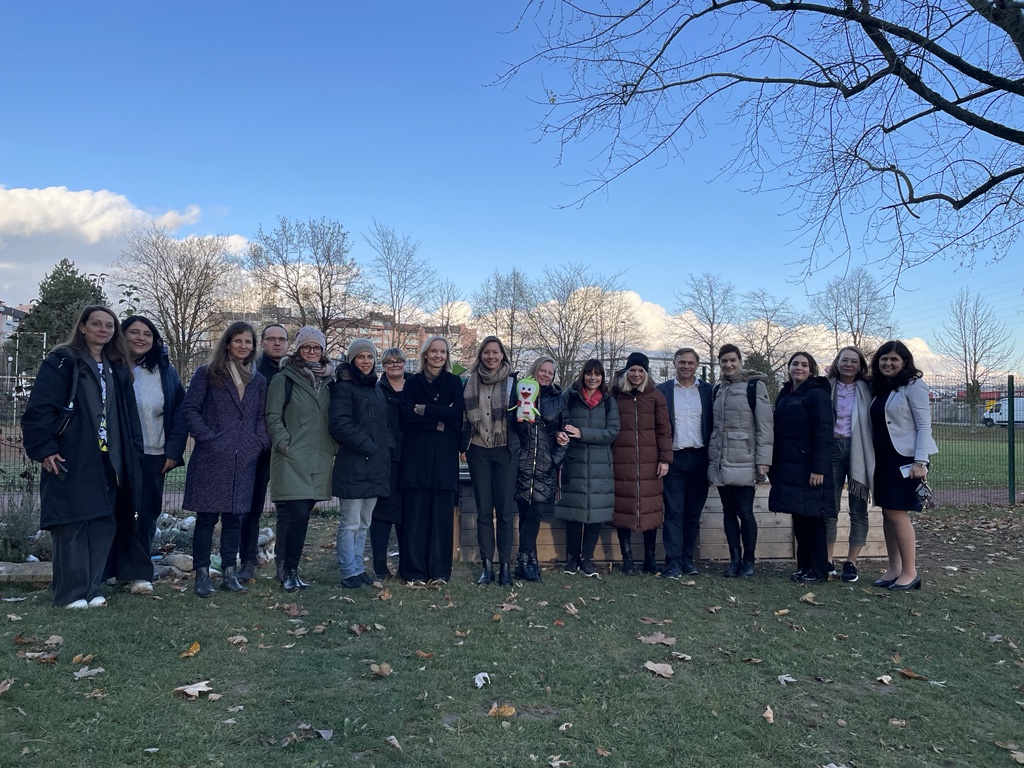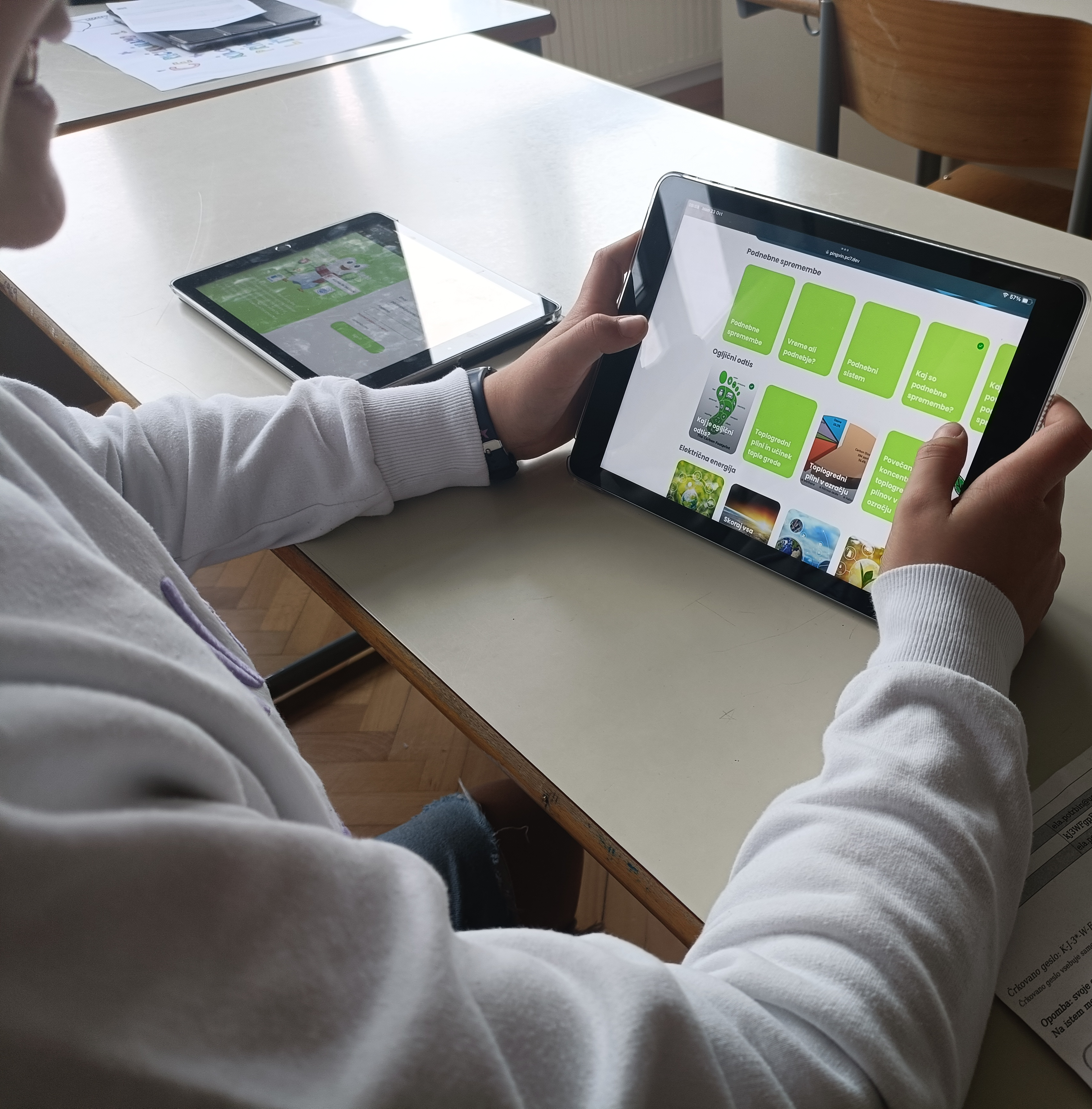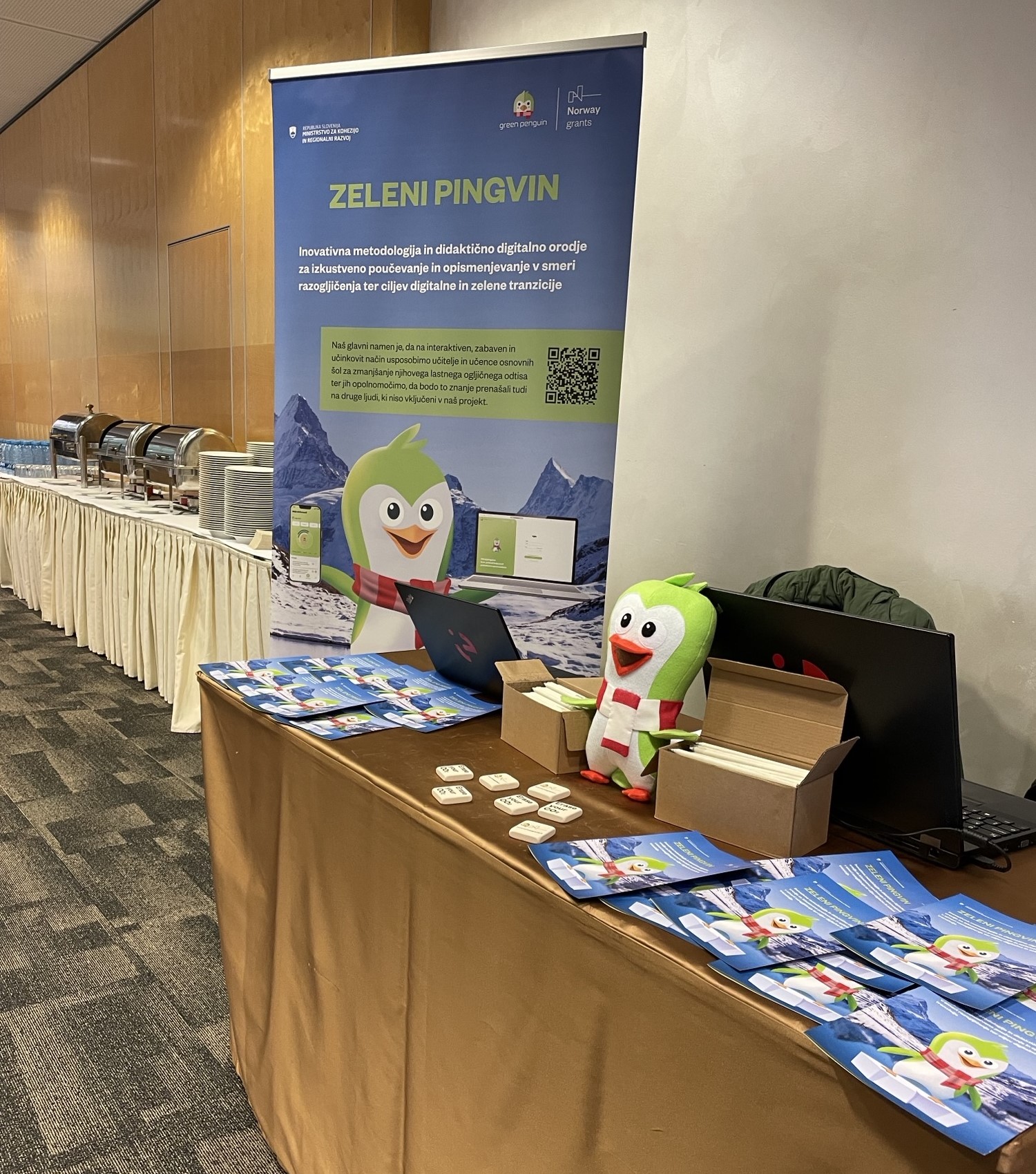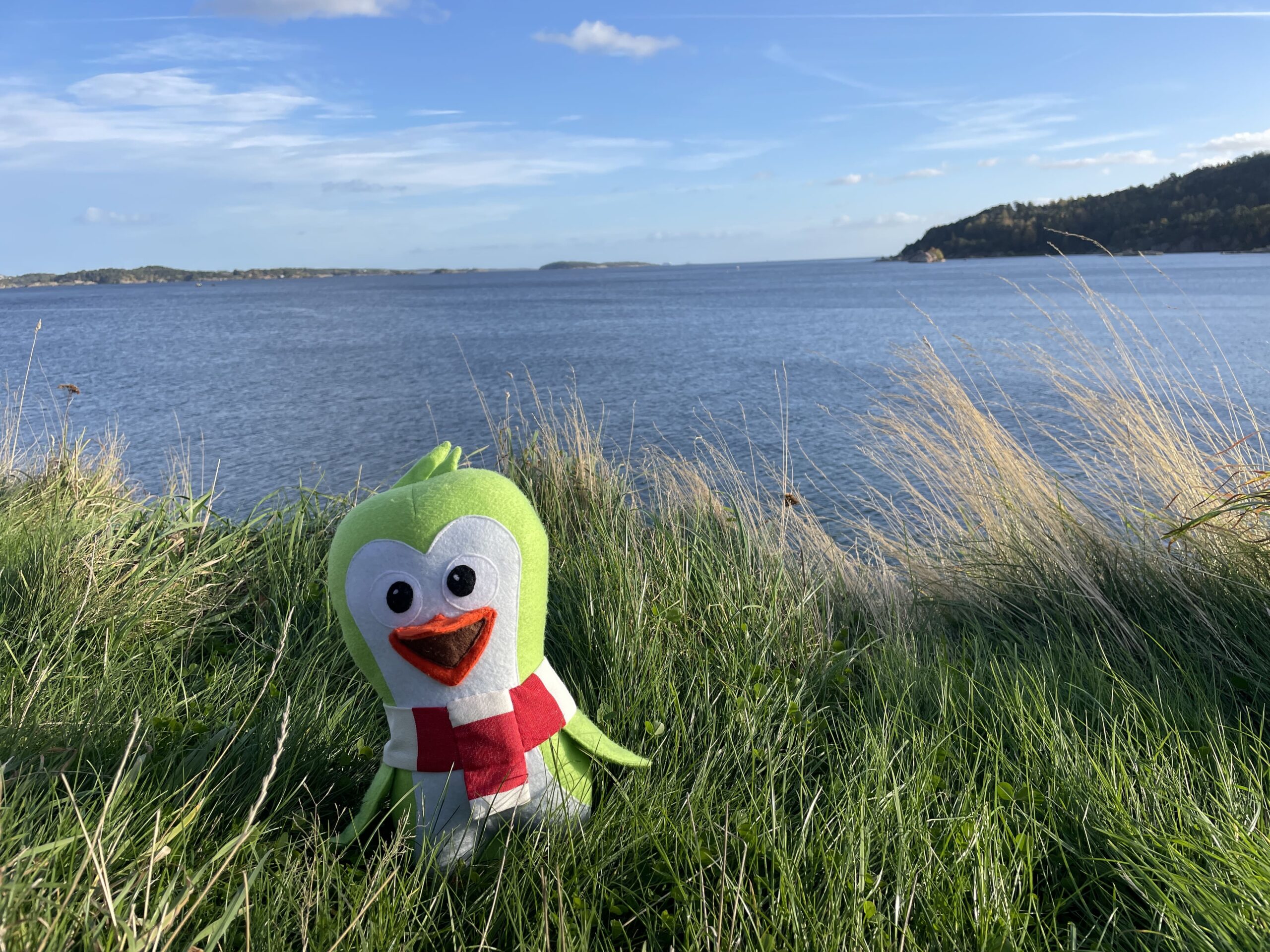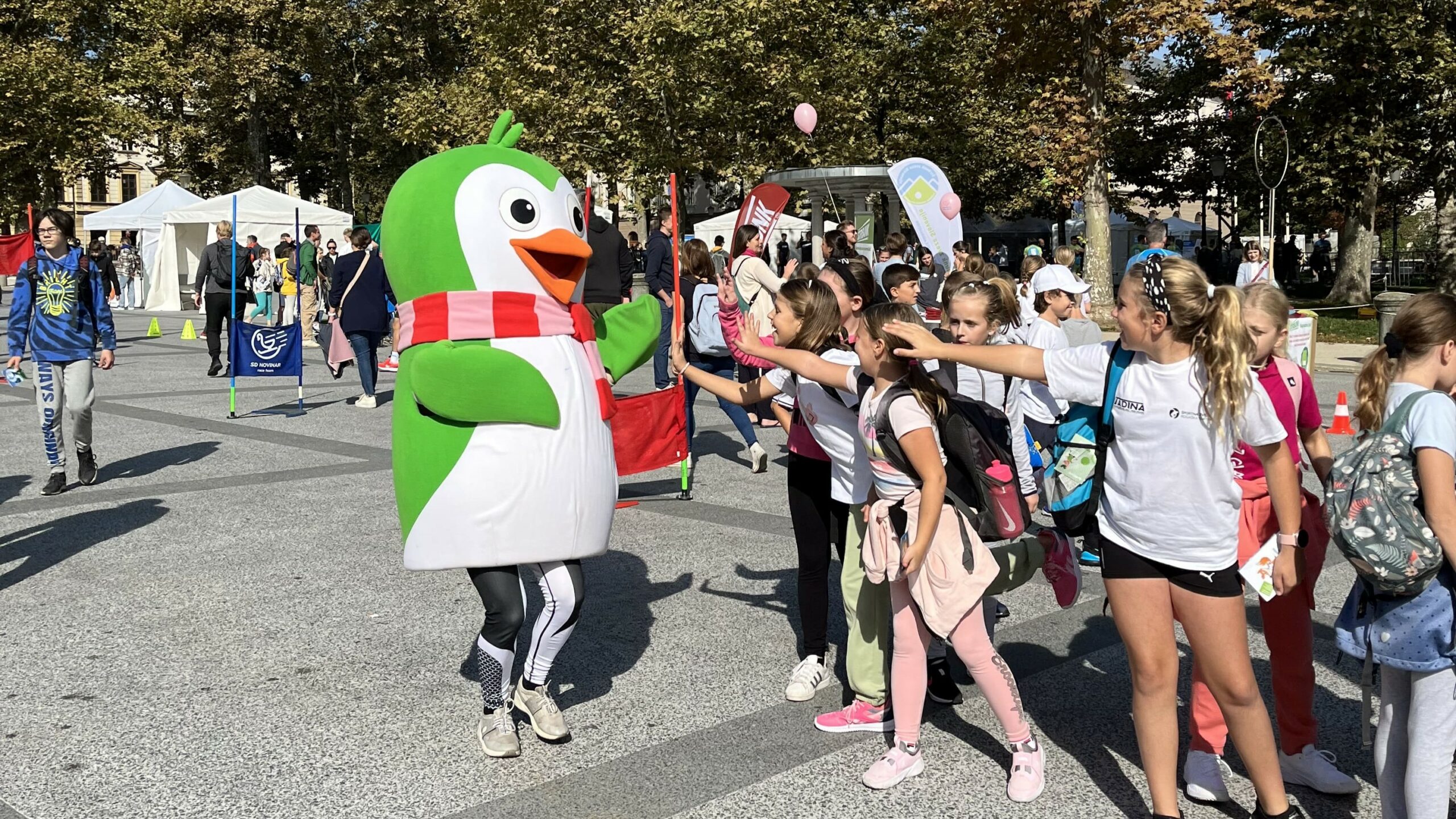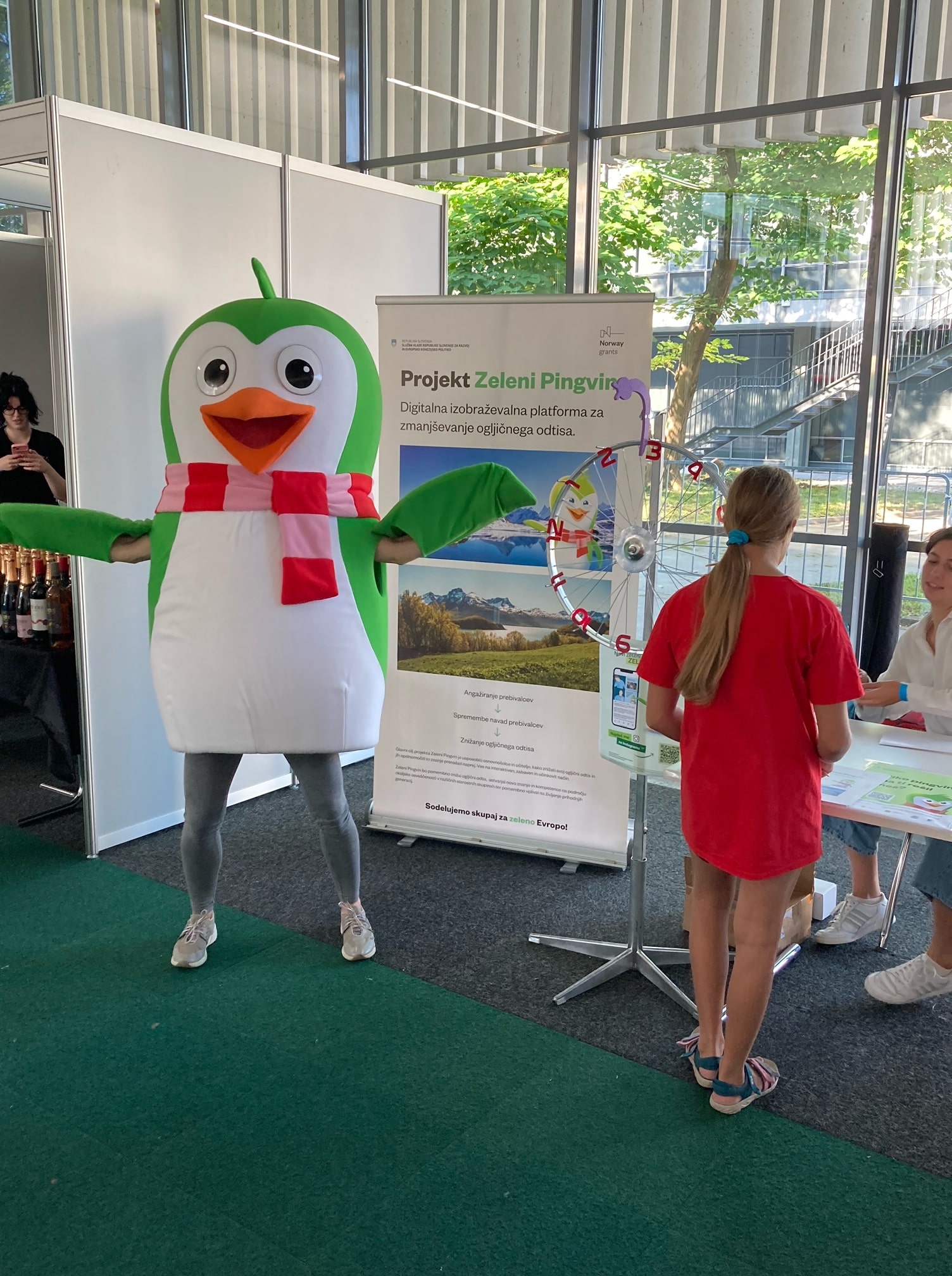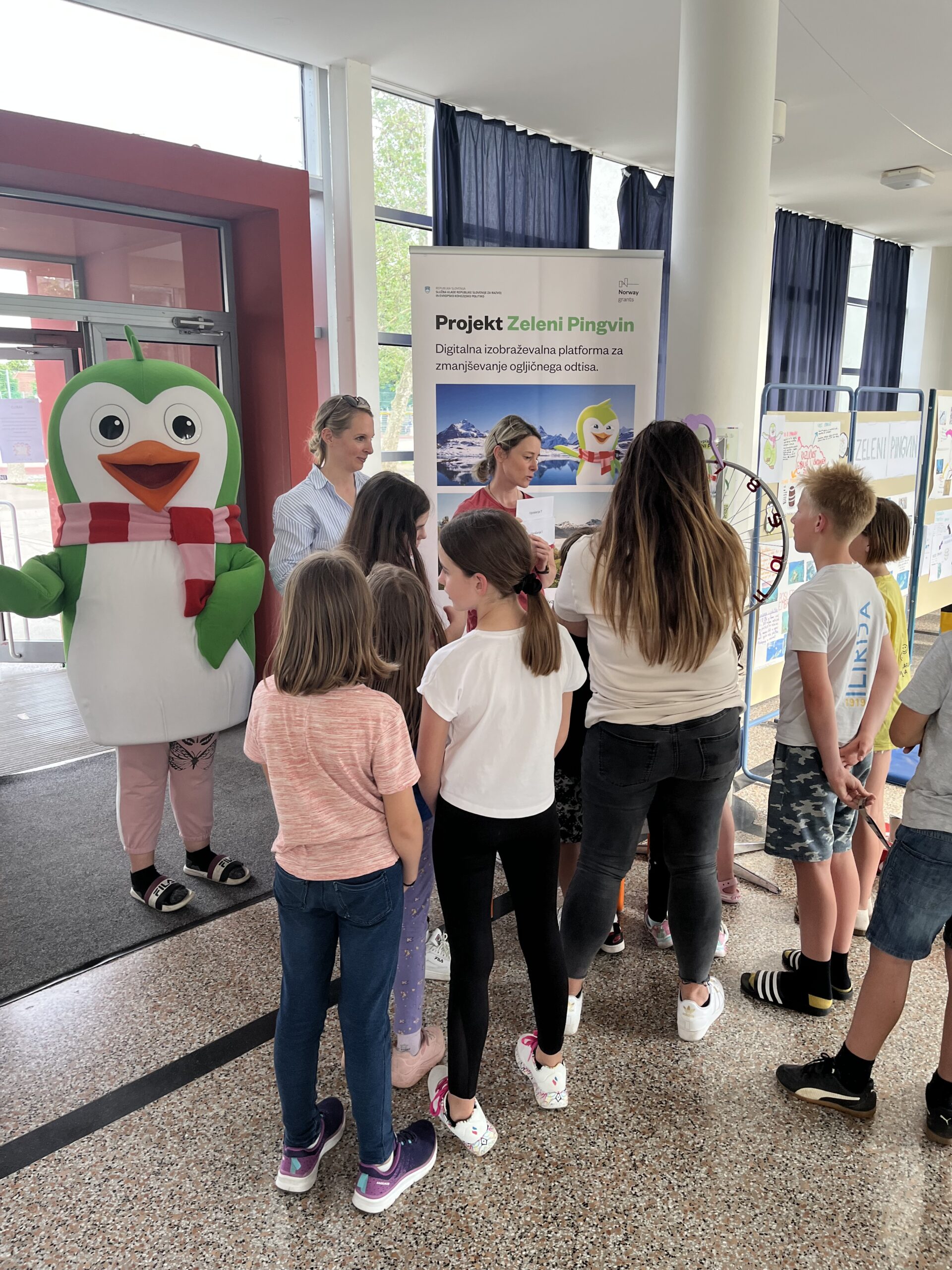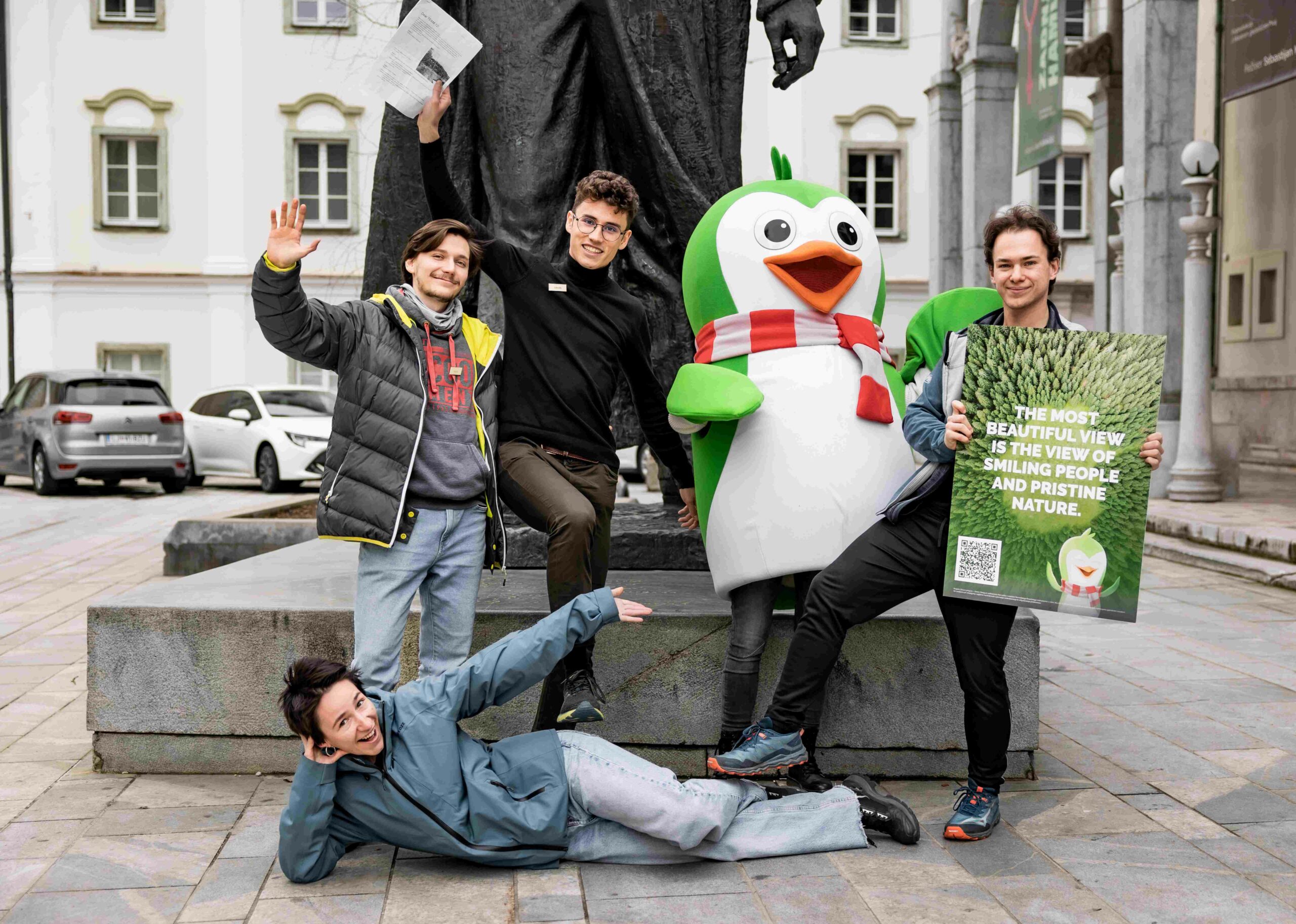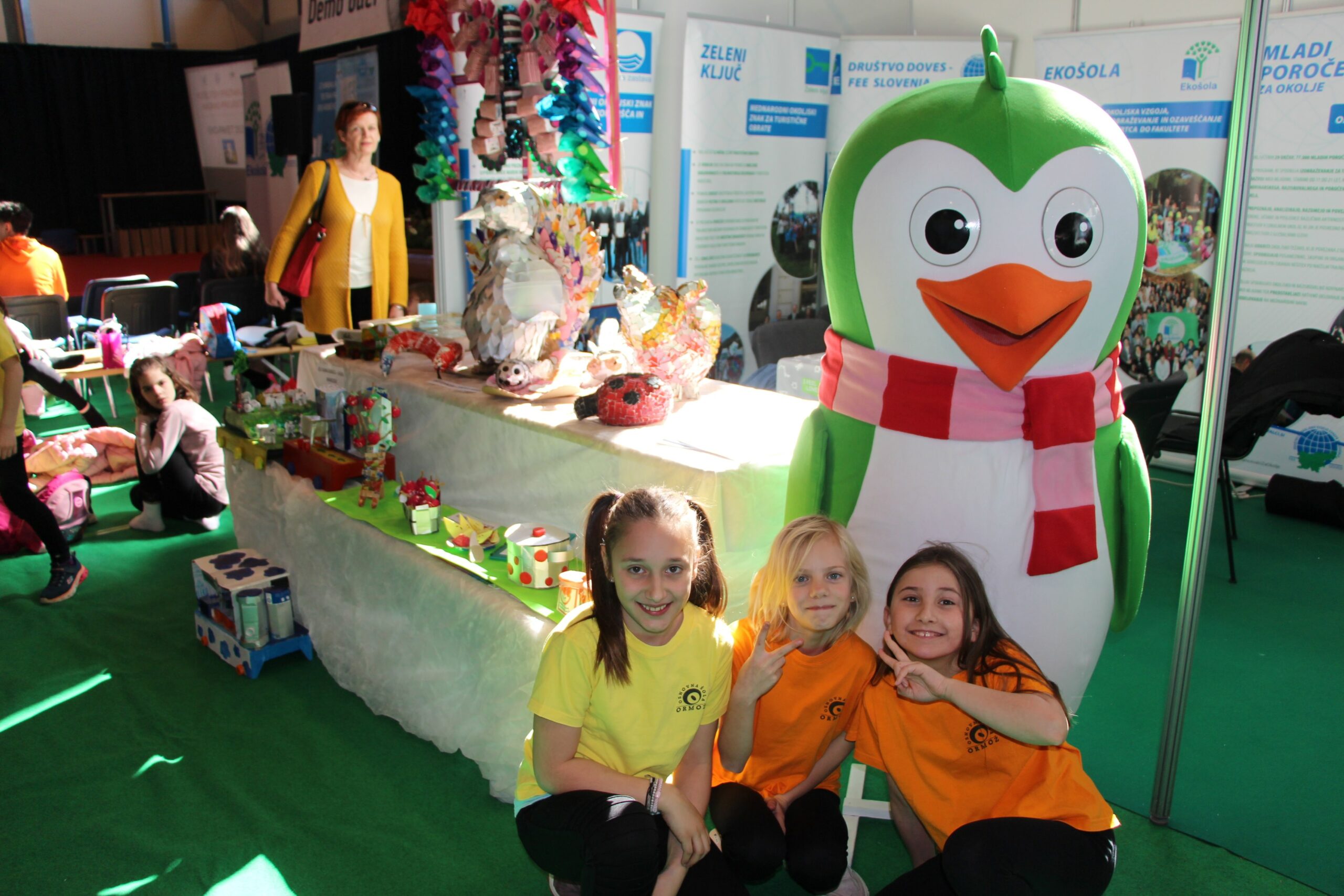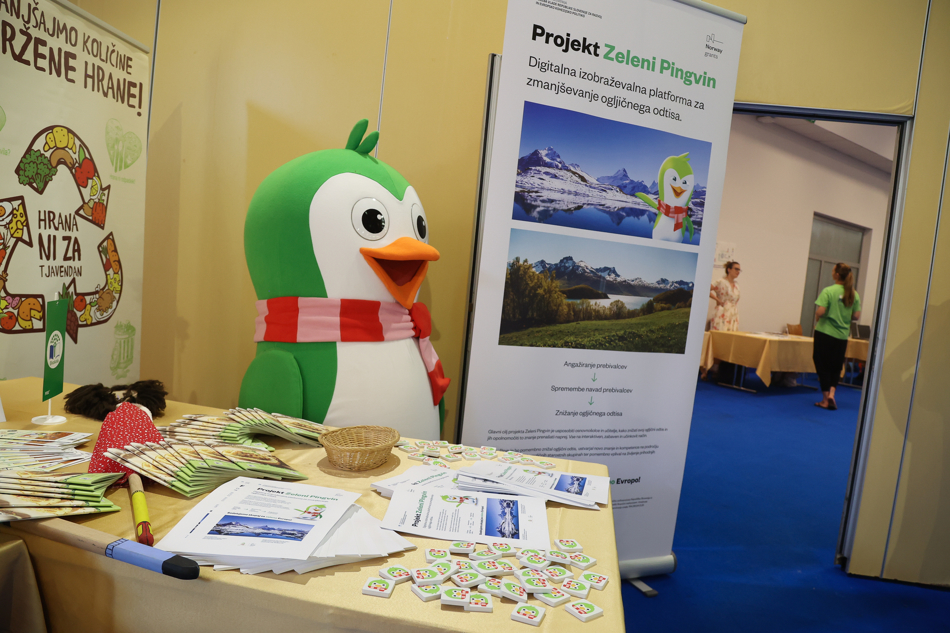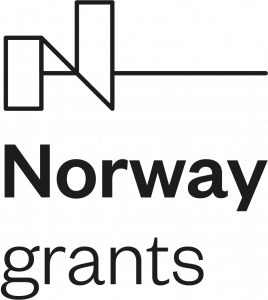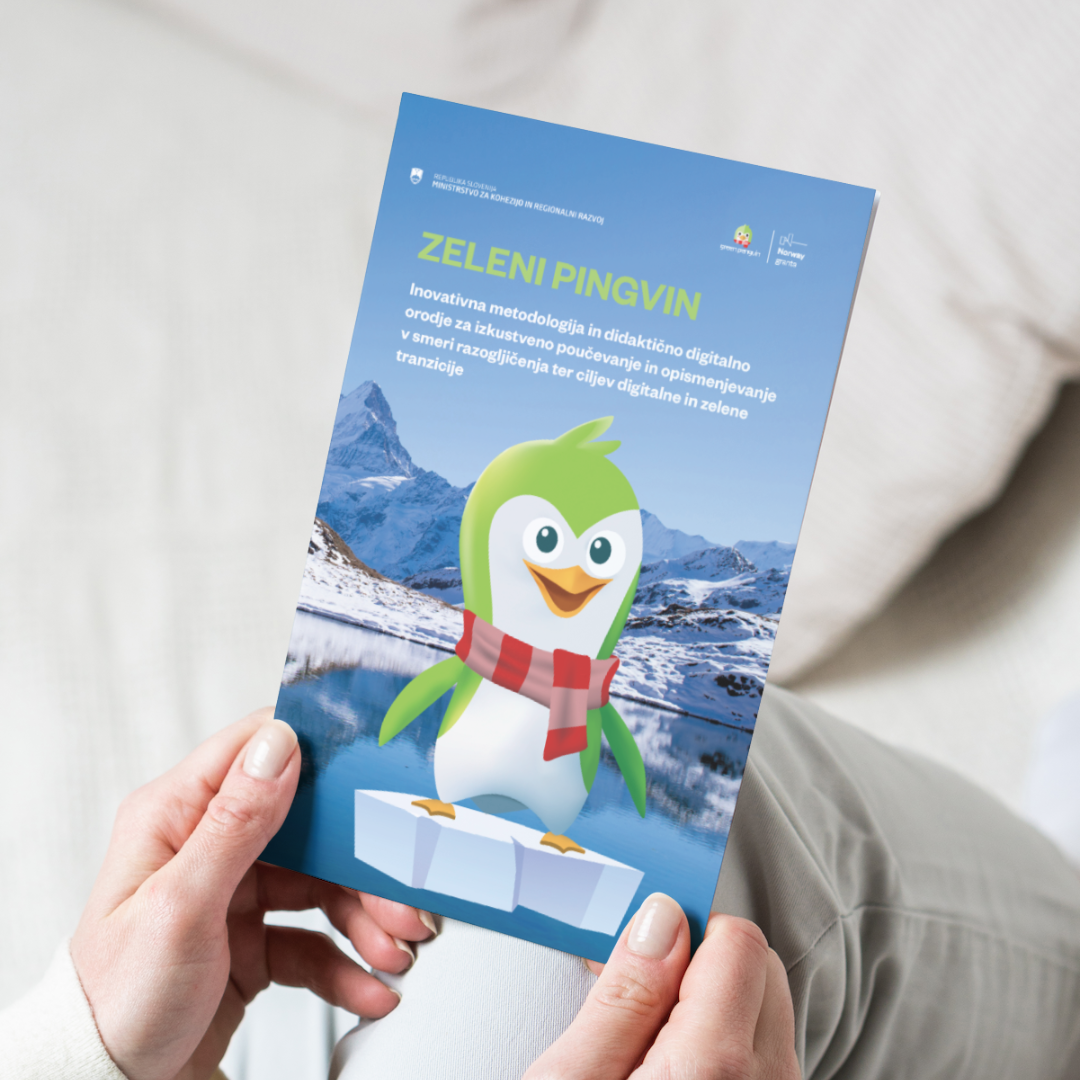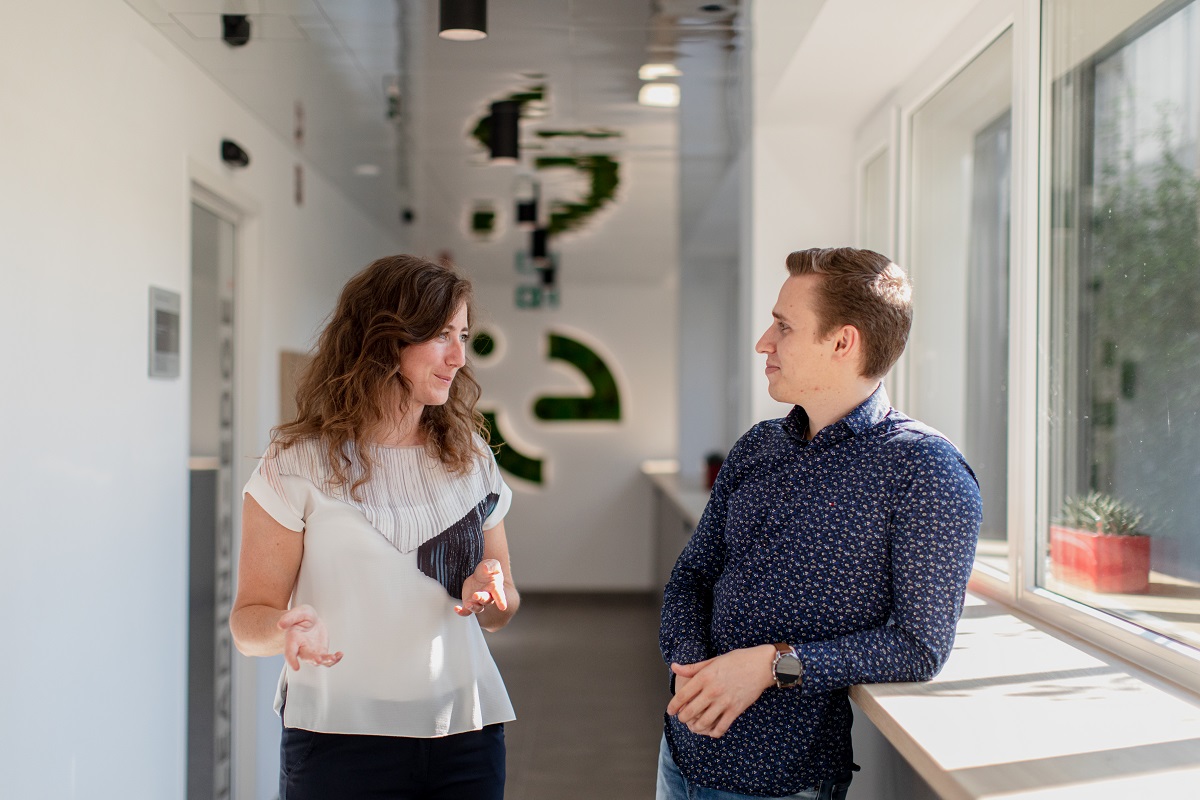- Winner of the Climathon Ljubljana challenge 2020.
- Placed in the TOP 3 Most Transformative Ideas of 2020 in Global Climathon, among 107 competing ideas, received the most public votes in Global Climathon 2020.
- Green Penguin was placed among the TOP 3 finalists in the Nordic Smart City challenge competition 2021.
- Winner in EEPA Awards in Slovenia and in Europe 2021.
- Regional Golden Innovation Award for Green Penguin project 2022.
- Award for Innovation Challenge for Green Penguin project 2022.
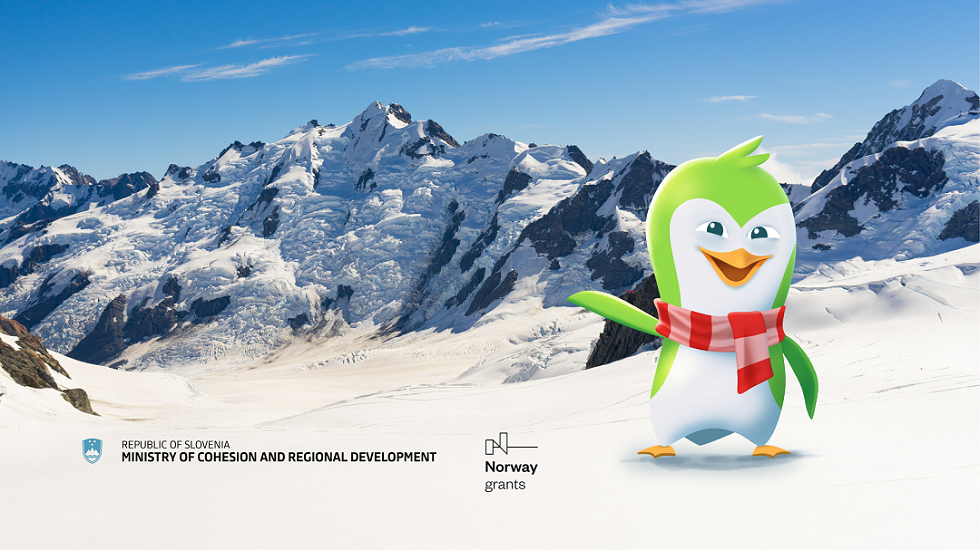
The Green Penguin project
The Green Penguin is a Smart City solution that educates and engages residents and supports cities in their efforts to become carbon neutral.
Energy demand is the source of more than 75% of carbon emissions in the EU, and demand continues to grow.
With more than 70% of CO2 emissions coming from cities, we need to tackle the trend of increasing urbanization and the high energy demand that comes with it.
How can we transform energy consumers into engaged citizens who contribute to energy efficiency and participate in creating a carbon neutral city?
Our answer is the Green Penguin. And who is he?

The Green Penguin is a leader of change, a friend, a visionary and a green influencer.
He is here to address the challenges of climate change by raising awareness of individuals, their impact on the environment and their role in sustainable development – starting with children.
He gives them insights and supports them in adopting and applying new, more sustainable habits and behaviors.
The Green Penguin project
The Green Penguin is a platform and application that teaches children, students, parents, and entire cities how to reduce their emissions by using fewer resources, living a sustainable lifestyle, and thus reducing their impact on the environment. It uses smart digital technologies, gamification and quantification to deliver environmental education to reduce CO2 emissions.
Starting with children in schools, this educational game allows them to record their activities and combine the data collected with data on the energy consumption and resources of schools and other buildings.
The resource consumption data is measured, analyzed and visualized in real time. In this way, we get an objective picture of the carbon footprint, transformed in the form of preserved trees, icebergs and rescued penguins, that even children can understand.
Through simple tasks, representations of the impact of everyday activities, and competitions with their peers, children gain new practical knowledge about how to reduce the carbon footprint in their daily lives. In this way, we encourage them to adopt sustainable behaviors where we are all winners together.
With this project, we want to prove that every individual can have an impact on the environment as long as they have enough knowledge and information. This is exactly why we want to target the younger population with the Green Penguin, who will learn about sustainable lifestyles at an early age and then share their knowledge in their community.
Why is the Green Penguin project important?
References of the Green Penguin project
Project Green Penguin is partly funded by consortium partners
Iskraemeco’s vision is to bring knowledge into energy. Our mission is to enable energy efficiency, so we created the idea and the Green Penguin consortium. Today, the Green Penguin project is being implemented by a consortium of companies, namely: Iskraemeco, d.d., the City of Kranj, the City of Ljubljana, the Association DOVES-FEE Slovenia and FEE Norway who are implementing the international Eco-Schools programme. The project is co-financed by the Norwegian Financial Mechanism and MCRD (Ministry of Cohesion and Regional Development) in the amount of EUR 764,281.54. The Norwegian Financial Mechanism stands for Norway’s contribution to a green, competitive and inclusive Europe.
Funding partners
Leading partner
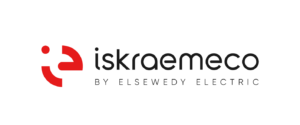 |
Iskraemeco |
Other consortium partners
| City Municipality of Kranj
|
City Municipality of Ljubljana
|
FEE Norway
|
DOVES FEE Slovenia – Eko School
|
 |
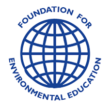 |
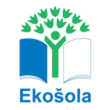 |
|
| Contact representative |
Contact representative |
Contact representative |
Contact representative |

Future steps of the Green Penguin project
Primarily, the Green Penguin connects schools and educates children about what and how CO2 emissions are created and how we can reduce them. It can also be used to connect other public infrastructure and to motivate everyone to work towards the common goal of reducing carbon footprint. Our goal is to bring this knowledge to other European cities, where more than 85% of Europeans will live by 2050, and where there is also greater potential for cross-sector integration and synergies in digital solutions and data use.
This application for children is the first digital solution of the Green Penguin digital platform, which will be extended to a platform for integrating digital applications for households, industry and businesses, as well as for governments and public institutions. The digital platform, covering and supporting all stakeholders in the urban environment, will allow to capture end-user behavior and share end-user insights with governments, energy and resource sectors to adapt current policies, create new innovations and adapt their operations to end-user demands and needs. This would help residents and businesses control energy consumption and CO2 production to reduce their carbon footprint. In this way, energy and resource consumption will be reduced and, as a result, so will the cost of cities and the amount of emissions. And fewer emissions will help the environment to recover.
Read more
Read less
Statements of support
| Luis Goncalves, CEO of Iskraemeco Group |
The Green Penguin project fits with Iskraemeco’s strategy to provide sustainable solutions to our customers. And it also matches the company’s approach to serving the community and supporting the global goals of green and digital transformation. |
|
Bahaa Abdullah, CFO of Iskraemeco Group |
We are very happy to have such an innovative project in our company, which fits well with our corporate and sustainability strategy. The project is also very creative, and this is a good thing to educate younger generations about sustainability because they are our future while at the same time we offer solutions for cities to support their decarbonization. |
|
|
|
|
|
|
| Janez Koželj, Deputy Mayor of Ljubljana |
In Ljubljana, we believe that CO2 reduction is not only about technologies but also about values. It’s about smart people, so we need to involve people to reduce the carbon footprint. The Green Penguin project is exactly what appeals to residents and uses technology. |
|
Auður Önnu Magnúsdóttir, NGO Landvernd Iceland |
When people are trying to improve their behavior, it is very important they get feedback on their change quickly. Children are especially quick to adapt. So when you make a change to a climate-smart school environment, as in this project, schools and children can see in real-time how they are contributing to a lower carbon footprint. |
